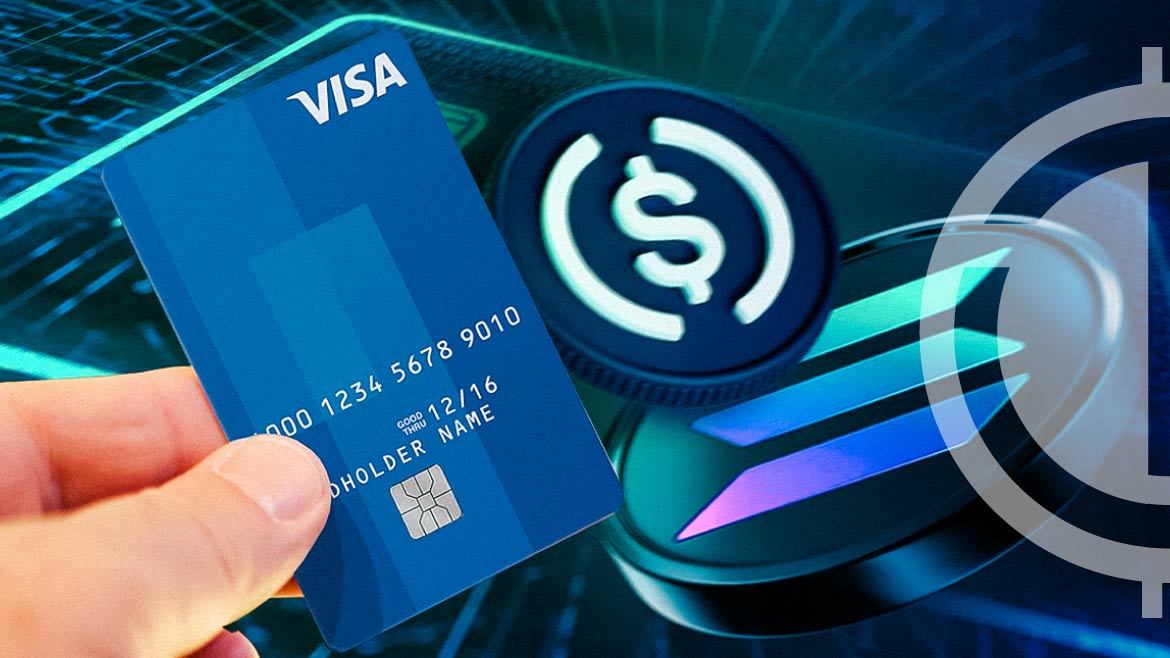- Visa partners with Circle’s USDC to enable stablecoin settlement on the Solana blockchain.
- Merchant acquirers Worldpay and Nuvei join Visa in this initiative for clients to send or receive funds via stablecoin settlements.
- This collaboration signifies Visa’s commitment to leveraging blockchain technology and the cost-efficiency of cross-border financial transactions.
Digital payment platform Visa announced that it is expanding its stablecoin settlement capabilities with Circle’s USDC to the Solana blockchain. It is working with merchant acquirers Worldpay and Nuvei to achieve this objective.
Solana announced Visa’s novel move via a tweet thread:
1/🏦Breaking: Visa Expands Stablecoin Settlement Pilot to Solana@Visa is scaling their USDC settlement pilot to include the Solana blockchain, enabling enterprise-grade throughput at virtually no cost for Visa issuers and merchant acquirers on Solana. https://t.co/rF5ouZaISM
— Solana (@solana) September 5, 2023
Visa has already executed live pilots, facilitating the transfer of millions of USDC across the Solana and Ethereum blockchain networks for settling fiat-denominated payments authorized via VisaNet. Their clients and partners now may choose USDC stablecoin settlement instead of receiving fiat currencies.
Cuy Sheffield, Head of Crypto, Visa, expressed how the platform’s action would improve the speed of cross-border settlement,
By leveraging stablecoins like USDC and global blockchain networks like Solana and Ethereum, we’re helping to improve the speed of cross-border settlement and providing a modern option for our clients to easily send or receive funds from Visa’s treasury.
The announcement highlighted the evolution of VISA’s adoption of USDC through pilots involving Crypto.com to integrations with merchant payment processors Worldpay and Nuvei.
The integration of USDC issued on Ethereum and Solana into Visa’s ecosystem means that the former could leverage Visa’s treasury and settlement systems to bridge TradFi with Web3.
In 2021, the payments company began testing USDC for treasury operations for the first time. Visa operated a test programme with cryptocurrency exchange Crypto.com, settling cross-border payments made with Crypto.com Visa cards and making use of the Ethereum blockchain. Sharing about the same, Sheffield tweeted, “This enables a modern and convenient option for crypto native issuers to more easily manage their card programs helping reduce the time and complexity of managing multiple bank accounts and international wire transfers”.
According to a case study document he shared, it was outlined that USDC settlement from Visa allows Crypto.com to eliminate the need to convert digital currencies into fiat currencies, opening up a whole new world of speed and cost savings. Crypto.com may now simplify settlement and have greater flexibility in how they settle, including the ability to settle 24 hours a day, seven days a week.
Circle CEO Jeremy Allaire said the partnership marks a fundamental blockchain innovation for altering payments and commerce, stating,
Circle built USDC to provide a functional digital dollar that could move at the speed of the internet to facilitate secure, reliable payments. Expanding the pilot exemplifies how pairing USDC with Visa’s innovation opens up the future of payments, commerce and financial applications.
Visa’s initiative could be seen as yet another milestone for traditional financial institutions utilising blockchain technology. Stablecoins are a subset of cryptocurrencies with prices pegged to an external asset, most commonly the US dollar, and are increasingly used for remittances and savings vehicles in developing countries.






